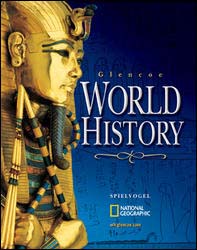Glencoe World HistoryChapter 31:
Asia and the Pacific, 1945–PresentWeb Activity Lesson PlansIntroduction
The Cultural Revolution was a massive effort to push ahead the revolutionary aims of the Communists in China. In this activity students will read about the background of the Cultural Revolution and its long-term effects on Chinese society and politics. Lesson Description
Students will go to the Cultural Revolution Web site to read about the revolution and its effects on Chinese society. After answering a series of questions, students will create a list of similarities and differences between the Cultural Revolution and two other major post-revolutionary events—the Stalinist purges in the Soviet Union and the Reign of Terror in France. Instructional Objectives - Students will be able to discuss the events during and the consequences of the Cultural Revolution.
- Students will be able to compare events of the Cultural Revolution with other major post-revolutionary events in the Soviet Union and in France.
Student Web Activity Answers - Tensions between China and the Soviet Union during the early 1960s convinced Mao that the Russian revolution had gone astray. He launched the Cultural Revolution out of fear that China would otherwise follow the Soviet path. Within China, as Mao's Great Leap Forward was rolled back, he began to doubt the revolutionary commitment of his colleagues and feared growing social stratification in China's cities.
- Mao encouraged the Red Guards to attack all traditional values and "bourgeois" things and to test party officials by publicly criticizing them.
- Jiang Qing was Mao's wife. She developed her own group of political allies and was a supporter of the Cultural Revolution. After Mao suffered a stroke, Jiang and her main supporters, known as the Gang of Four, vied for power and influence with Deng Xiaoping and Zhou Enlai.
- Officials became timid out of fear of a future purge. A severe generation gap developed among those raised during and after the Cultural Revolution. Corruption became widespread. Chinese people became disillusioned with politics. Factionalism from the era of the Cultural Revolution persisted in the workplace and throughout society.
- Students' comparisons will vary.
 | 






